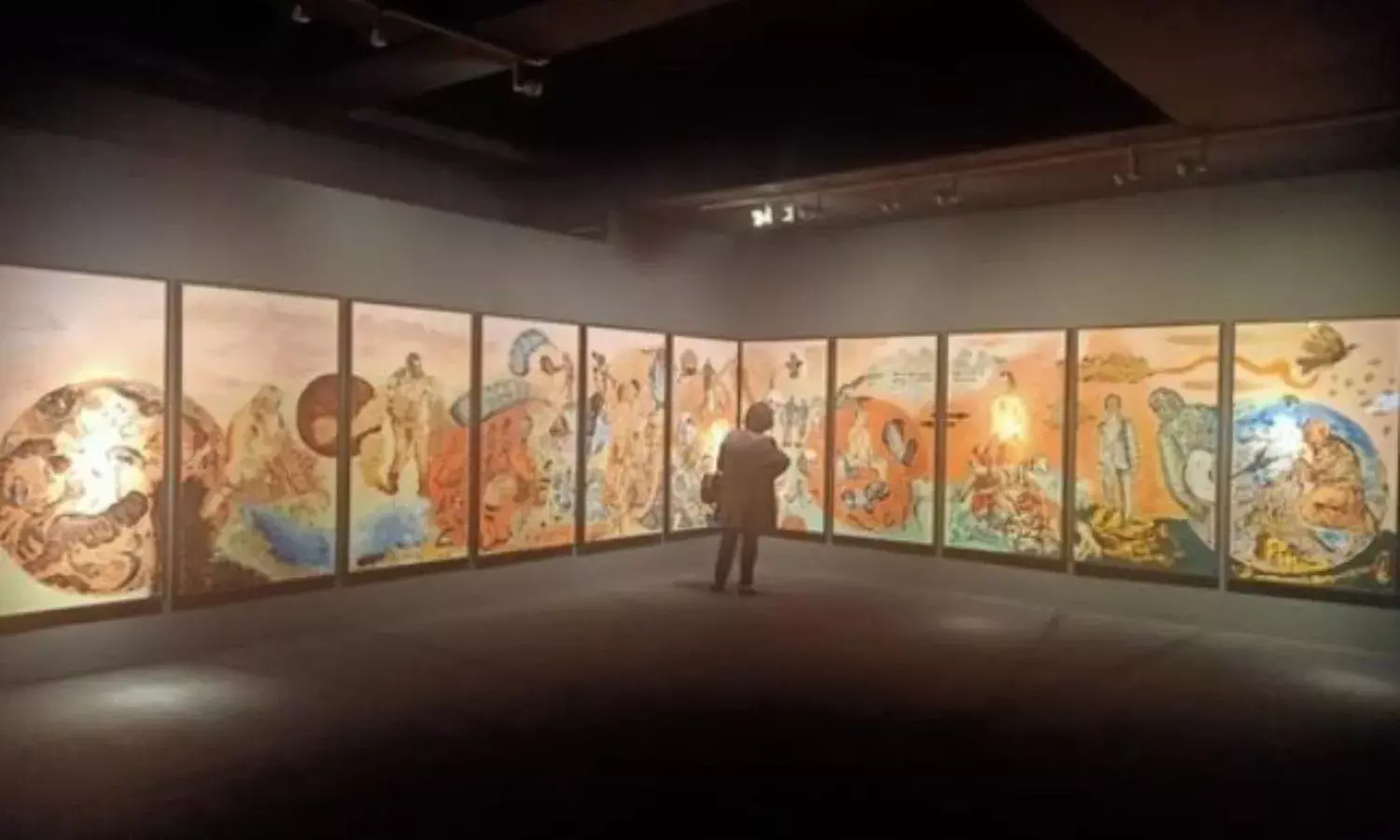The Art of Time Travel
Under Lockdown

One often thinks of things from the past, brief patches or rather flashes of moments, that somehow one can relate to at that moment of time. When I mix up ingredients to bake a cake, I think of my Nani, the thought is not constant, it is like a flare, which lights up a brief moment, the twelve year old me looking at Nani’s fingers magically fusing ingredients to make besan ka ladoo. And when in the present I open a jar of coconut cookies I think of Nani’s house, and the little aluminium cabinet, with the whiff of biscuits and the sticky smell of masalas. But I am very much in 2020, isolated, secluded, yet time traveling for ever and a day.
Time Machines are illusive, like hearts, they are deceptions like dreams. Time Machines are our memories, ebbing away after a surge. Art has that power to make moments freeze, battles contract into paints, the past becoming an influential moderator for the complex present, through its unceasing power to exist in visuals, music and performances despite the onslaught of time.
An Exhibition at Kiran Nadar Museum of Art, New Delhi, which began in the pre-isolation period of 2020 and continues through June, is a triad of exhibitions, collectively titled: Scripting Time – Memory – Ecology, curated by Roobina Karode. Zarina – A Life in Nine Lives, Line, beats and shadows and Abstracting Nature are the three exhibits part of the show.
Zarina – A Life in Nine Lives (Across Decades – Borders – Geographies) is a solo exhibit bringing together the artistic prowess of Artist Zarina Hashmi, a New York based Indian Artist who recently passed away in London. She was uniquely positioned as one among the first generation of diaspora artists of South Asia. The Show explores her fascination towards the medium of paper and minimalism, showcasing her woodcut prints, lithographs and etchings and a few sculptural objects. Zarina Hashmi’s life beset with migration, her fascination for architecture and interaction with varied cultures influenced the themes and techniques in her art works. Her works were influenced by the trauma of Partition, the longing to return to an origin, a desire which she transformed into a poetically minimal visual language. Her works interpreted ‘Home’ in the form of nostalgia, relations, geographies and place.
Line, Beats and shadows presents works by artists Ayesha Sultana, Prabhavathi Meppayil, Lala Rukh and Sumakshi Singh. Ayesha Sultana masquerades fragile paper into metal, her art drawn from the visuals of Dhaka’s shanty towns marked by contrasting class conditions. Prabhavathi Meppayil’s works of metal parts harmonizes modernist practices with traditional craftsmanship of goldsmiths in South of India. Sumakshi Singh works around the idea of nostalgia and memory to recreate domestic architectural spaces with lace embroidery. Lala Rukh’s photographic practice brings together six of her works, which were recorded during Lala’s travels across South Asia between 1992 and 2005. Her work carries the idea of minimalism – tranquil topographical views of water bodies, devoid of people.
The third part of the show highlights Ecology through the Abstracting Nature exhibit, bringing together works by artists Mrinalini Mukherjee and Jayashree Chakravarty. Their works merge myriad objects found in nature. Drawings and Etchings produced by Mrinalini Mukherjee showcases the artist’s long-standing connection with nature and her interest in flora and fauna. Jayashree Chakravarty’s art practice addresses the shrinking natural habitat and water bodies in ever-expanding Indian Cities. Through poetic recreations, she illustrates the need for environmental balance and resurrection. Both the artists use organic, free flowing materials like dry flowers and twigs found in Jayashree’s work and jute ropes, fibres crafted into Mrinalini’s work; the philosophies of both artists influenced by the idea of seeking solace in the serenity of nature.
There is a quiet calm in being at one place, not moving, yet traveling to metropolises of the past. There is a quiet calm in surrendering to memories of loss, soaking in the grief till it aches you no longer. Today I am descending a flight of Kota stone steps, the moment is dark, briefly broken by daylight from white arches looking towards the garden. The bicycle is kept neatly tucked in its now nostalgic spot, the aroma of dry jasmine floats around and the crisp smell of lightly burnt spices intermingle with the constant sound of a warm mincing of chillies. This is home, like it always was, yet it is only in my mind’s time machine, the ‘home’ no longer exists, yet the palpable memories satiate my senses like I have lived here forever.
A Must Visit Art Show after the Lockdown:
Scripting Time – Memory – Ecology, curated by Roobina Karode: from January 30, 2020 to June 30, 2020 at Kiran Nadar Museum of Art, 145 South Court, Saket, New Delhi.



